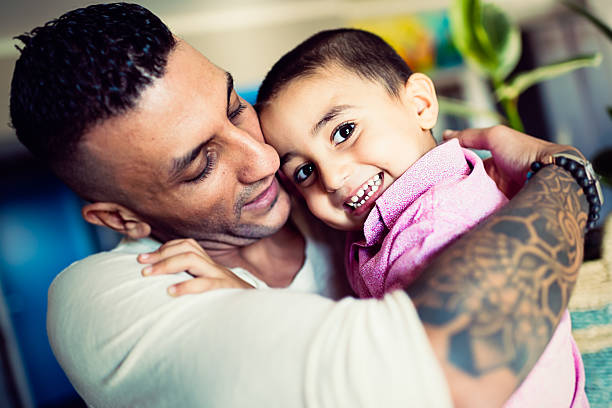As adults and human beings, it’s a common challenge to actively listen without thinking of our own response. Rather than listening solely to respond, we should take the time to actively listen for the sake of listening.
When it comes to communicating with our children, part of this entails active listening. No matter what their age, listening creates a connection and lets them know that you’re interested in what they have to say, what’s happening in their world and their opinions. Whether it’s your toddler telling you about the sand castle he made at preschool, your primary schooler who got picked last during sport, or your teen who’s having friendships troubles.
As a father and father figure, it’s your role to lend a listening ear, empathise and let them know you’re always there. If you’re not able to see them every day, make some time during the week to phone them up for a chat and ask about their day.
How can I practise active listening?
- Make eye contact when they’re talking and stop any other things you’re doing
- Don’t boomerang the discussion back to yourself
- Get down on their level
- Avoid questions that break you child’s train of thought
- Empathise and put yourself in their position
- Become curious and ask questions about their music, interests, school and friends
- Listen attentively, even when you’re afraid of what they want to tell you
- Don’t solve, criticise or judge
- You want them to come to you when they have a problem or have made a mistake. When they do tell you about issues – express your feelings respectfully. Don’t ‘explode’, instead, listen carefully.
- Tell them if you think they’ve made a bad choice, but ensure they know they are still loved and supported. Try saying “I don’t think that was a great call, and you’ll need to think hard about what to do about it now. But I’m really glad you’re talking to me about it, I love you and I’ll support you through this.”
Remember, you don’t always need to be the ‘fixer’ of everything. Just being there to listen is more than enough. You’ll make them feel heard, loved, and free to express themselves when communicating with you.



